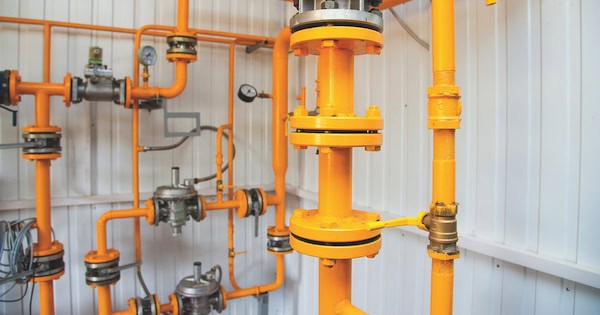Keeping Boilers In Capable Hands
When the heating system fails in a commercial building during the dead of winter, or when a hospital’s critical steam boiler malfunctions, facilities managers understand the true value of having skilled professionals on call. Behind every reliable boiler maintenance operation stands a technician whose expertise was forged through rigorous training programs designed to transform novices into highly capable professionals. Today, comprehensive apprenticeship pathways represent the backbone of modern facilities management success.
The Foundation Of Professional Excellence
Quality plumbing, HVAC, and boiler maintenance begins with quality education. The complexity of modern boiler systems demands expertise that can only be developed through a combination of technical instruction and on-the-job training.
Modern commercial and industrial boilers are sophisticated pieces of equipment that integrate mechanical, electrical, and digital technologies. A single system might incorporate advanced combustion controls, variable frequency drives, sophisticated monitoring systems, and complex safety interlocks. The technician responsible for maintaining such equipment must possess a depth of knowledge that spans multiple disciplines, from fundamental thermodynamics to cutting-edge digital diagnostics.

Bridging Traditional Apprenticeships With Modern Learning
For instance, the PHCC Academy online apprenticeship combines the time-tested apprenticeship model with the flexibility and accessibility of modern digital learning platforms. This approach recognizes that today’s learning environment must accommodate the diverse needs of both apprentices and employers while maintaining the rigorous standards necessary for professional competency.
Through the PHCC Academy curriculum, apprentices gain access to content that covers boiler components, operating guidance, and system maintenance. Also included are explanations of various piping systems and related boiler system characteristics. The program’s structured approach ensures that learners progress systematically through increasingly complex topics, building a solid foundation before advancing to specialized applications. This methodical progression is crucial in boiler maintenance, where a thorough understanding of basic principles underpins the ability to diagnose and resolve complex problems.
Apprentices can access training materials at their own pace, revisiting complex concepts as needed while progressing quickly through areas they grasp readily. This flexibility is particularly valuable for working professionals who must balance their training with existing job responsibilities, allowing them to develop their skills without interrupting their contribution to critical facilities operations.
In-Depth Training For On-the-Job Readiness
PHCC Academy’s curriculum includes vital boiler training components, equipping students with technical knowledge that supports hands-on practical application. Apprentices begin with fundamental concepts, including heat transfer principles, combustion theory, and basic mechanical systems. This foundational knowledge provides the conceptual framework needed to understand how boiler systems function and why specific maintenance procedures are necessary.
As apprentices progress, they encounter increasingly sophisticated topics including advanced control systems, energy efficiency optimization, and troubleshooting methodologies. The curriculum emphasizes practical application, ensuring that theoretical knowledge translates directly into job-site capabilities. This approach is essential in boiler maintenance, where the ability to quickly diagnose problems and implement effective solutions directly impacts facility operations and safety.
Safety training represents a critical component of the apprenticeship program, reflecting the inherent risks associated with boiler operation and maintenance. Apprentices learn to identify potential hazards, implement proper safety procedures, and respond appropriately to emergency situations. This emphasis on safety protects both the technician and the facility while ensuring compliance with regulatory requirements that govern boiler operations.
The Value Proposition For Facilities Management
For facilities managers, the investment in professionally-trained boiler maintenance technicians yields substantial returns across multiple fronts. Well-trained technicians can identify potential problems before they result in system failures, reducing the likelihood of costly emergency repairs and unplanned downtime. Their expertise enables them to optimize system performance, reduce energy consumption, and extend equipment life while maintaining reliable operation.
The depth of knowledge developed through comprehensive apprenticeship programs enables highly trained technicians to serve as valuable advisors to facilities management teams. They can provide insights into equipment performance trends, recommend preventive maintenance strategies, and contribute to long-term planning for system upgrades or replacements. This advisory role transforms the technician from a service provider into an integral contributor to facilities management.
Moreover, professionally trained technicians bring credibility to maintenance operations that can be crucial in regulated environments such as healthcare facilities, educational institutions, and government buildings. Their adherence to rigorous training protocols upholds compliance with professional standards and provides assurance to regulatory authorities, insurance providers, and facility users that boiler systems are maintained according to industry best practices.
Building Tomorrow’s Workforce Today
As experienced technicians approach retirement, the industry must develop new professionals capable of maintaining increasingly complex systems. Emerging technicians need comprehensive training to possess the knowledge and skills needed to meet these evolving demands.
The apprenticeship model also offers a pathway for career advancement that benefits both individuals and employers. Apprentices who successfully complete training programs often become valuable long-term employees who contribute to organizational stability and knowledge retention. Their professional development creates opportunities for advancement within facilities management organizations while building the industry’s overall capacity to deliver quality services.
Integration With Modern Facilities Management
Today’s facilities management operates in an environment of increasing complexity, where boiler systems must integrate seamlessly with building automation systems, energy management programs, and sustainability initiatives. Technicians need to be equipped with a foundational understanding of these modern requirements, preparing them to navigate the basics of integrated building systems while maintaining their expertise in core boiler maintenance disciplines.
This integration capability is particularly valuable as facilities increasingly rely on data-driven maintenance strategies and predictive analytics. Technicians trained through comprehensive apprenticeship programs can contribute to these advanced approaches while ensuring that fundamental maintenance requirements continue to be met effectively.
Elevating Standards: Investing In Professional Excellence
Rigorous training pathways can represent more than professional development opportunities; they are investments in the reliability and safety of critical building systems. For facilities managers, the decision to work with professionally trained technicians or to support apprenticeship programs within their organizations directly impacts operational success.
Traditional apprenticeship values can be enhanced through online, modern delivery methods, creating accessible pathways to professional excellence. By supporting these training initiatives, the facilities management industry ensures that tomorrow’s boiler systems will remain in capable hands, backed by the expertise and professionalism that only comprehensive training can provide.
In an industry where system reliability can mean the difference between comfortable, productive environments and costly disruptions, the value of professional training cannot be overstated. The apprentices of today become the experts of tomorrow, and their preparation through rigorous, comprehensive programs ensures that critical building systems continue to operate safely and efficiently for years to come.
By Daniel Quinonez and Charles R. White
From the August 2025 Issue of Facility Executive

Quinonez is the Executive Director for the PHCC Educational Foundation.

White is the Vice President of Regulatory Affairs for the PHCC-National Association.
Do you have a comment? Share your thoughts in an e-mail to the Editor at [email protected].

